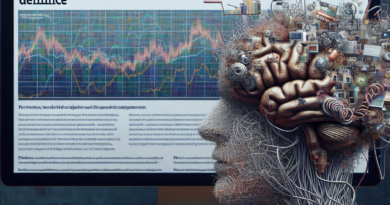New EU Law on AI: What’s Inside
The EU’s AI Act: A Landmark Legislation
The AI Act officially came into effect on Thursday, August 1st, across the European Union after being approved at the end of May.
It represents the world’s first and most comprehensive legislation on artificial intelligence.
Addressing AI on a Risk-Based Approach
The act, which had been in the works since 2021, gained urgency after the release of ChatGPT a few months later.
It addresses artificial intelligence based on a risk parameter, imposing strong restrictions on AI applications considered high-risk.
Companies using AI for high-risk activities such as medical devices, bank loans, and autonomous vehicles must conduct proper risk assessment and mitigation, provide high-quality training data, and record routine activities.
The new AI Office in Brussels will oversee these measures for each company to ensure compliance.
Prohibited Uses and Praise for the EU’s Approach
Some uses of AI are deemed “Unacceptable” and are therefore banned by law, such as social scoring systems and emotion recognition algorithms.
Supporters have praised the EU’s risk-based regulatory framework for encouraging innovation while prioritizing safe technology development and implementation.
Regulating Generative AI Models
Generative AI models like ChatGPT and Google’s Gemini fall under “General Purpose” technology.
When these models are not open source, they must comply with European copyright law, disclose information on their datasets, and implement adequate cybersecurity measures.
Open-source generative AI models, like Mistral’s 7B, have little to no regulation.
The AI legislation mainly targets US-based tech giants like Microsoft, Google, Amazon, and Meta, which have heavily invested in AI solutions.
Global Implications and Enforcement
The AI Act applies to any organization with activities or impact within the EU, regardless of their location.
Violations of the AI law can result in fines of up to 35 million euros or 7% of the company’s global turnover, whichever is higher.
The legislation has far-reaching implications beyond the EU, especially for US tech giants, whose AI models have faced scrutiny for alleged copyright violations and breaches of European privacy laws.
Published on Money.it International Edition on August 1, 2024, 20:12:43.
Original Title: “The EU’s AI Act comes into force.
Here’s what it contains.”




